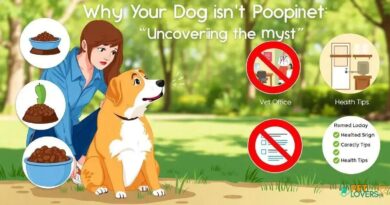What is how to care for elderly dogs
Understanding the Needs of Elderly Dogs
Caring for elderly dogs requires a deep understanding of their unique needs. As dogs age, they may experience various health issues, including arthritis, vision and hearing loss, and cognitive decline. Recognizing these changes is crucial for providing the best care possible. Regular veterinary check-ups become essential to monitor their health and address any emerging issues promptly.
Nutrition for Senior Dogs
Proper nutrition plays a vital role in the health of elderly dogs. Their dietary needs often change as they age, requiring a shift to high-quality, easily digestible food that is lower in calories but rich in essential nutrients. Look for dog foods specifically formulated for senior dogs, which typically contain fewer calories and added supplements like glucosamine for joint health. Always consult your veterinarian before making significant changes to your dog’s diet.
Regular Exercise and Mental Stimulation
While elderly dogs may not have the same energy levels as younger ones, regular exercise is still important. Short, gentle walks and play sessions can help maintain their physical health and prevent obesity. Additionally, mental stimulation through puzzle toys or training exercises can keep their minds sharp and engaged. Tailoring the activity level to your dog’s capabilities is key to ensuring they remain active without overexertion.
Creating a Comfortable Living Environment
A comfortable living environment is essential for elderly dogs. Consider providing a soft, supportive bed that is easy for them to access. Non-slip mats can help prevent falls, especially in areas with hard flooring. Ensure that their living space is free from hazards and that they have easy access to food, water, and their favorite resting spots.
Managing Health Issues
Elderly dogs may face various health challenges, including chronic pain, incontinence, and cognitive dysfunction. It’s important to work closely with your veterinarian to manage these issues effectively. Medications, supplements, and lifestyle adjustments can significantly improve your dog’s quality of life. Regular monitoring and open communication with your vet will help you navigate these challenges.
Grooming and Hygiene
Grooming becomes increasingly important as dogs age. Regular brushing helps to keep their coat healthy and free of mats, while also allowing you to check for any skin issues or lumps. Bathing should be done as needed, using gentle, dog-specific shampoos. Additionally, dental care is crucial; regular teeth brushing and dental check-ups can prevent oral diseases that are common in older dogs.
Recognizing Signs of Pain and Discomfort
Being attentive to your elderly dog’s behavior is vital for recognizing signs of pain or discomfort. Changes in appetite, reluctance to move, excessive vocalization, or changes in sleeping patterns can indicate underlying issues. If you notice any of these signs, consult your veterinarian for a thorough evaluation to ensure your dog receives the appropriate care and treatment.
Providing Emotional Support
Elderly dogs often require more emotional support as they age. They may become more anxious or clingy due to changes in their health or environment. Spending quality time with your dog, providing gentle reassurance, and maintaining a consistent routine can help alleviate their anxiety. Engaging in calm activities, such as cuddling or gentle petting, can strengthen your bond and provide comfort.
Planning for End-of-Life Care
As difficult as it may be, planning for your elderly dog’s end-of-life care is an important aspect of responsible pet ownership. Discuss options with your veterinarian, including palliative care and hospice services, to ensure your dog is comfortable in their final days. Making decisions about euthanasia can be heart-wrenching, but understanding your dog’s quality of life can guide you in making compassionate choices.
Building a Support Network
Caring for an elderly dog can be challenging, and having a support network is invaluable. Connect with other pet owners, veterinarians, and pet care professionals who can provide advice and assistance. Online forums and local pet groups can also offer emotional support and practical tips for navigating the complexities of caring for senior dogs.




